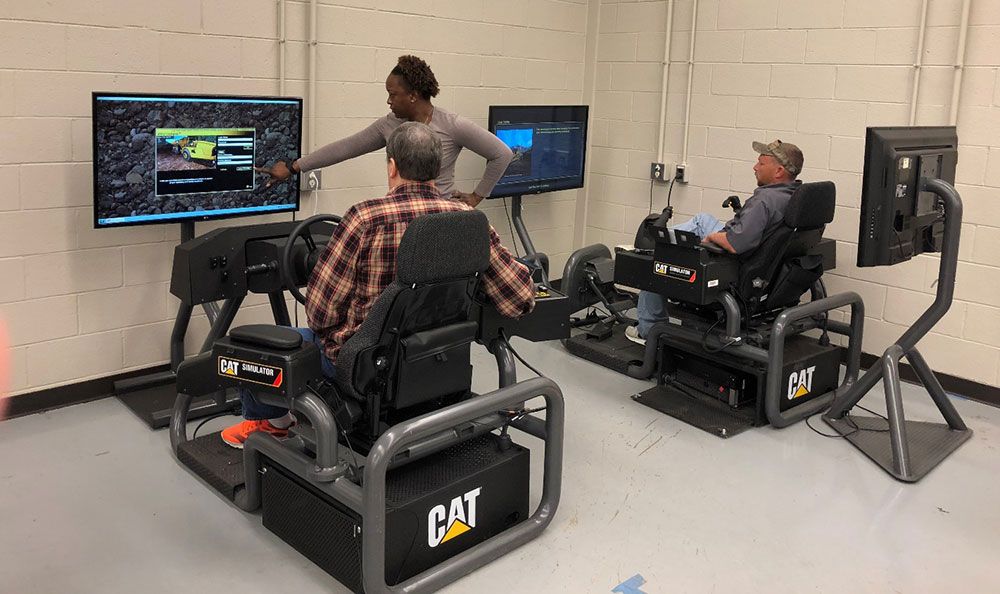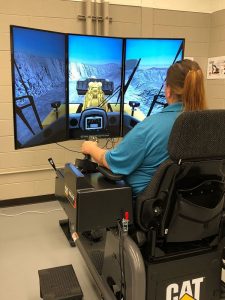Pushing Digital Dirt
Simulators Train Wake Students for Earthmoving Jobs

In 2013 Gregory Poole Equipment Company partnered with Wake Tech, North Carolina’s largest community college, and other industry leaders to address this growing customer issue. It is one example of how the Caterpillar dealership is helping their customers address the shortage of qualified equipment operator that plagues the industry. “Gregory Poole doesn’t have any operators that work for us, but we felt that this was a growing need for our customers to be able to continue meeting project deadlines and growth potential, while supporting our local school,” said John Adamof, Technical Service Manager for Gregory Poole. Adamof, along with area customers, helped establish the Advisory Board for the Wake Tech program, with the goal of addressing industry demands for properly trained operators.
While Gregory Poole is an equipment company, the goal of this collaborative program is not to fill the company’s own need, but rather to help its customers and industry. “With the continuing need for infrastructure improvements, road building, housing and commercial project, there is a high demand for operators.” Adamof said. This program attempts to engage college students in order to meet that current and growing demand.
Beginning in January 2018, the college began offering a Heavy Equipment Operator (HEO), Associate Applied Science degree, along with two certificate programs. “We’ve had great support from the construction and agriculture industries,” said Ronnie Lowe, Administrative Department Head of Wake Tech’s Applied Engineering & Technologies Department. “They are all in desperate need of trained equipment operators. They told us, through the Advisory Board, what their needs are and we designed the curriculum specifically to meet those needs.”

“We currently have a dozen simulators for the students to gain training experience at an entry level,” Lowe added. The program also utilizes actual machines for the on-the-iron training portion of the programs, with several of the live machines that match the simulators. “The students get about 200 hours of simulator use and 30 hours of actual machine operation per semester,” Lowe said. “Using simulators are what makes the program feasible.”
Lowe acknowledges that the program is in its infancy. The plans are to quickly expand to sixteen simulators and add virtual reality (VR) to the existing simulators, enhancing the reality of the training even more. “That would give us a capacity of handling fifty-six students a semester spread over morning, afternoon and evening classes,” Lowe said.
Both Adamof and Lowe agree that by using the digital world, Gregory Poole and Wake Tech can help provide the industry with the equipment operators they need, as well as providing young men and women in the county with an excellent opportunity for a fulfilling career … and it all starts with learning how to safely and efficiently push digital dirt.
Visit Wake Tech to learn more about the Heavy Equipment Operator Degrees and Pathways.

